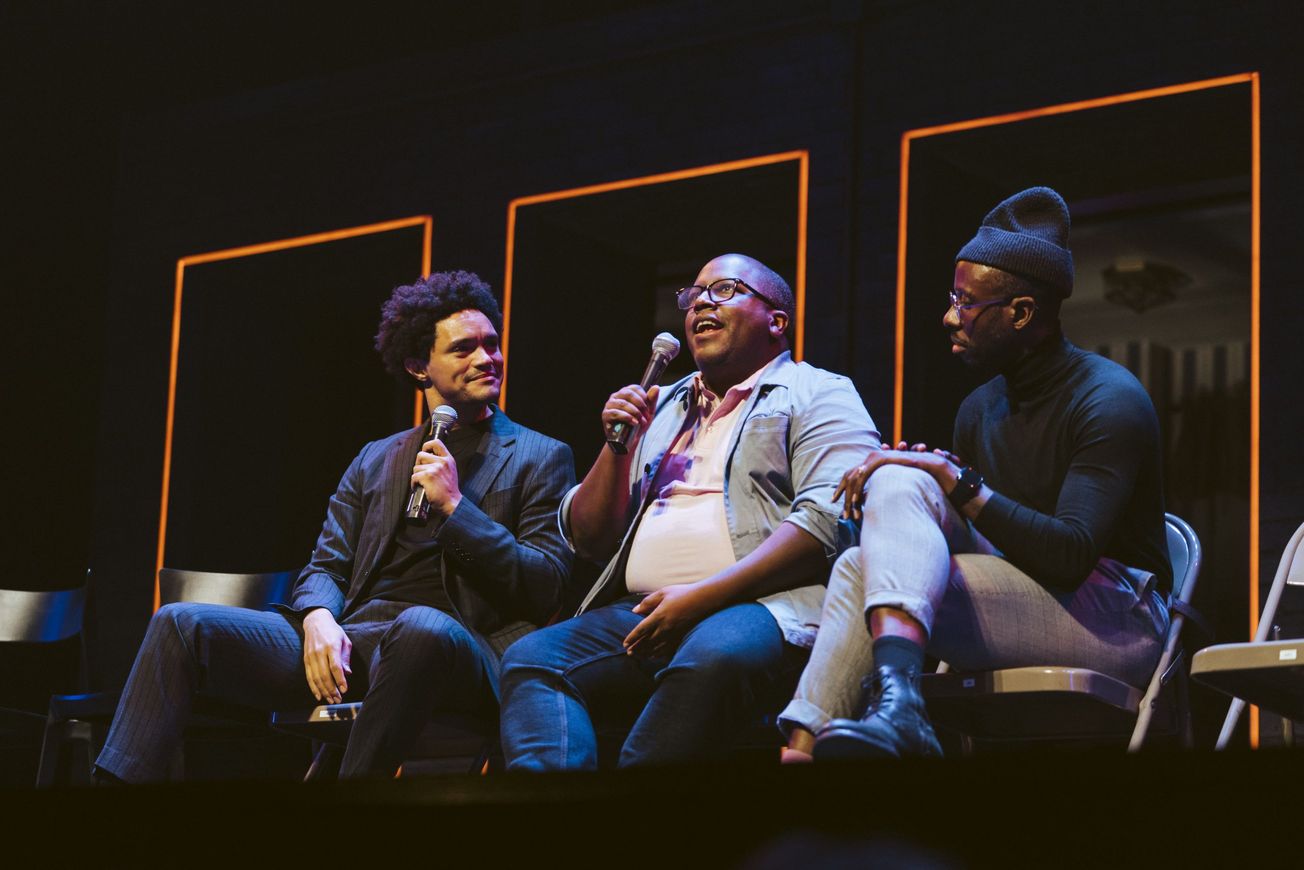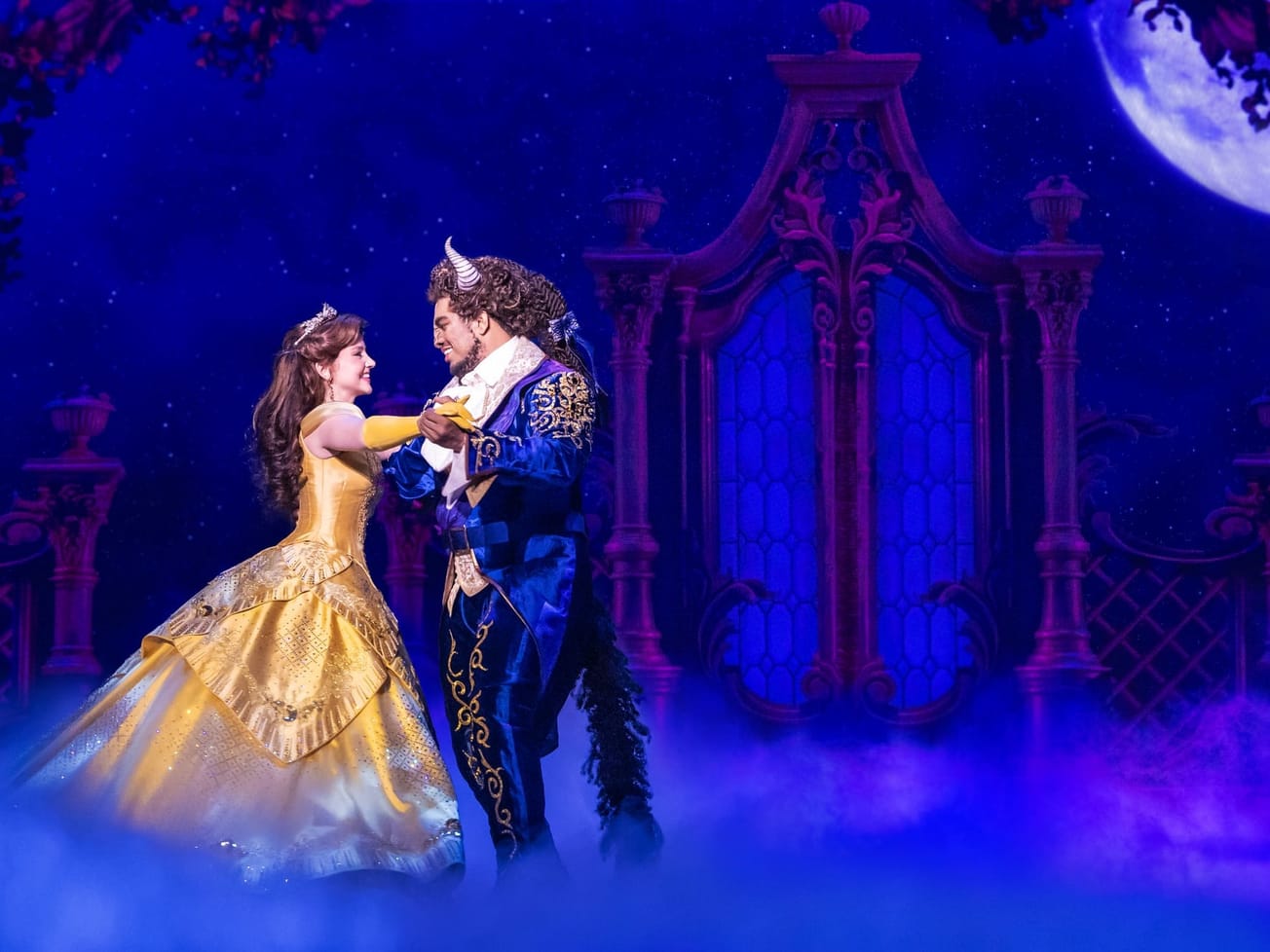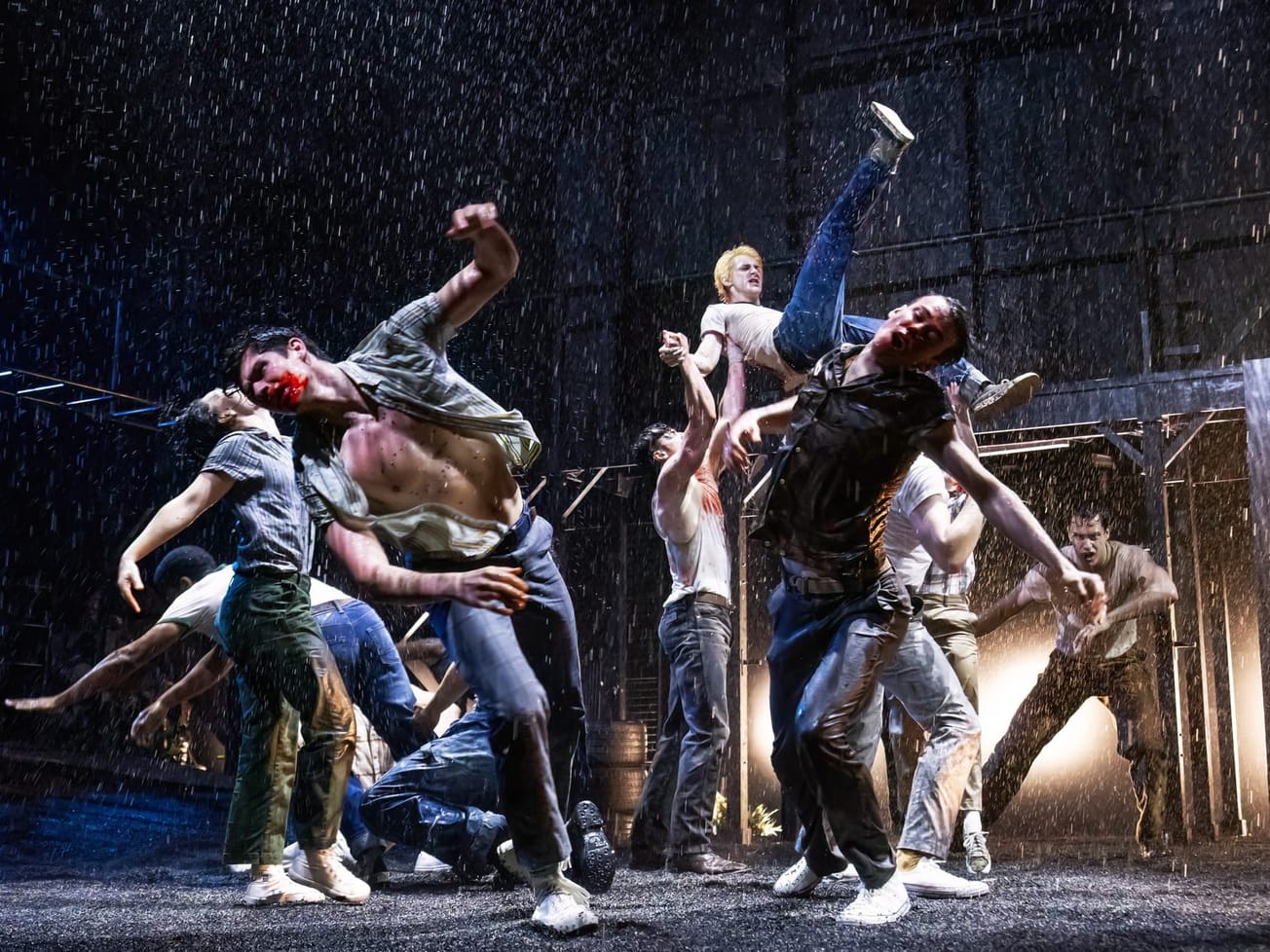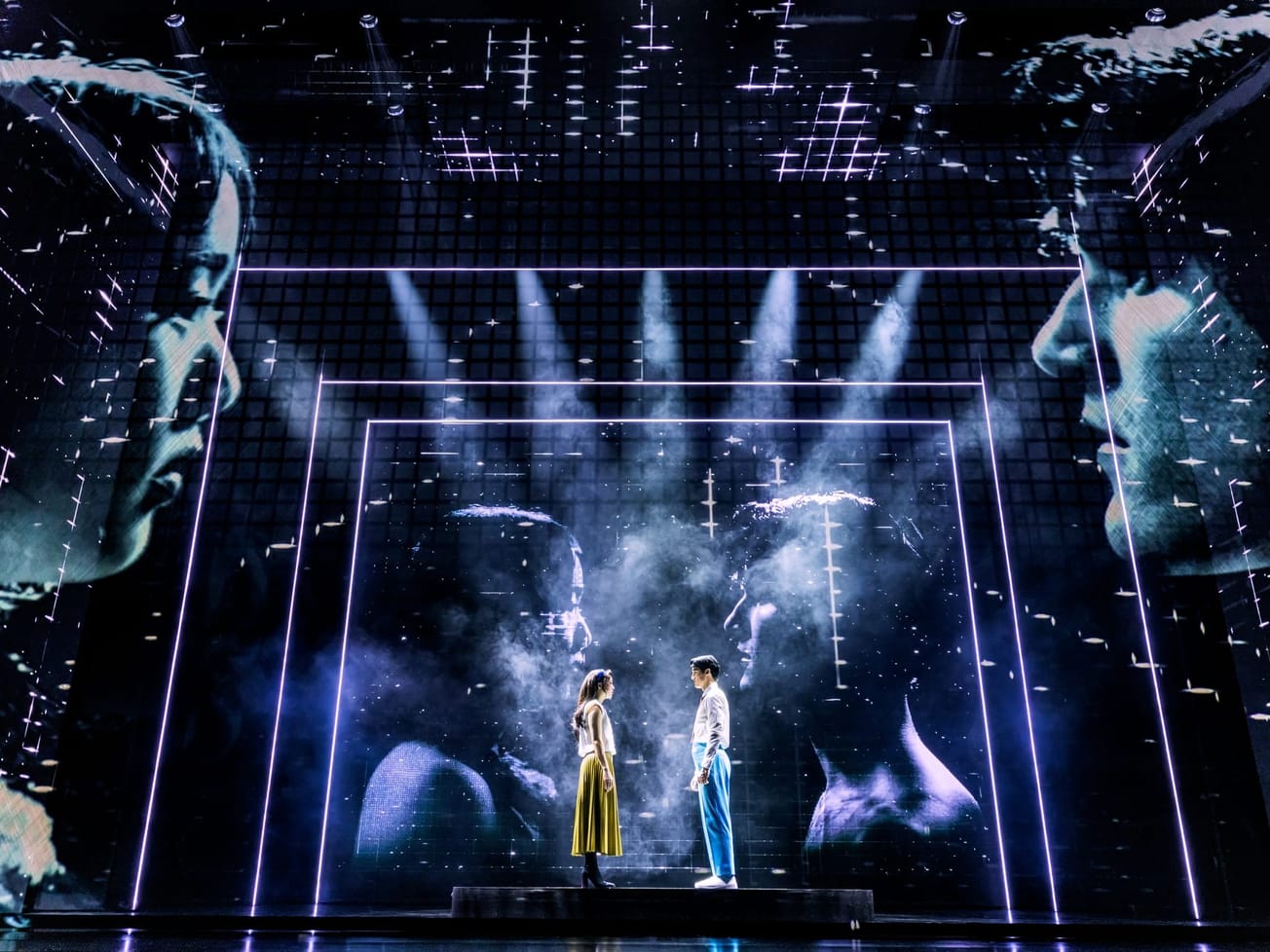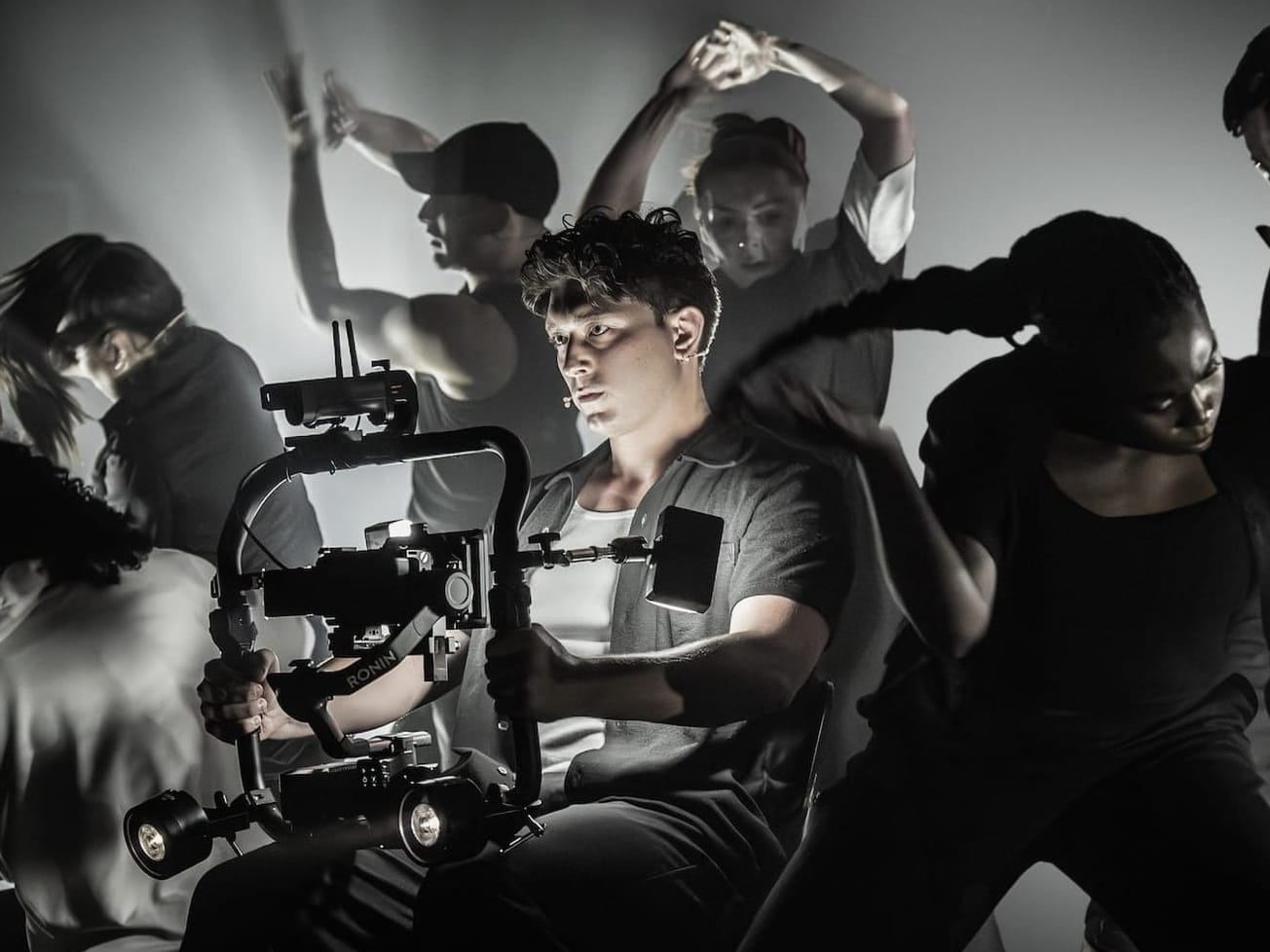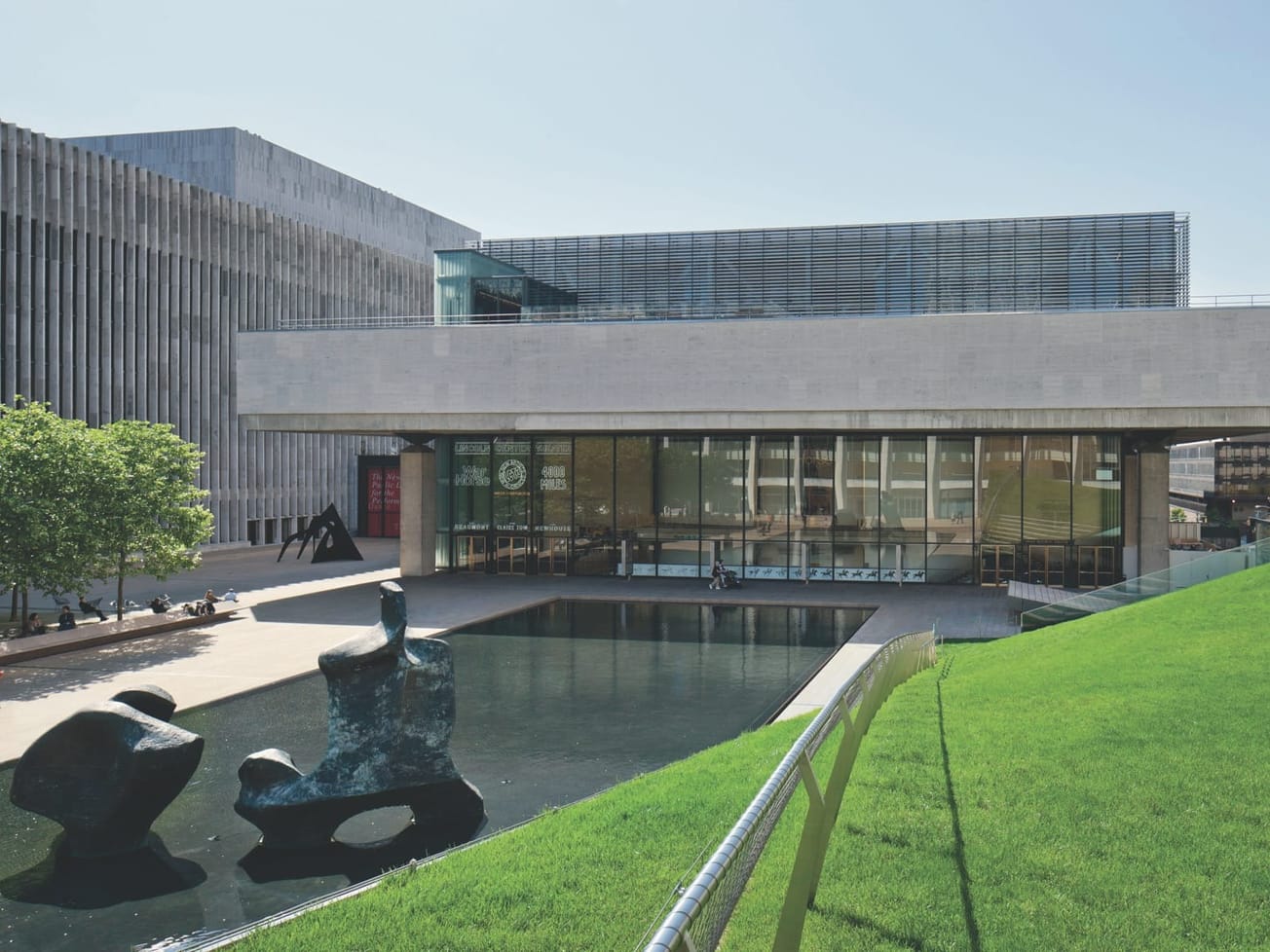Broadway’s “A Strange Loop” packed the Lyceum Theatre for a celebratory Black Theater Night on Nov. 29, followed by a talkback moderated by notable host and comedian Trevor Noah. Black Theater Nights cultivate spaces of community, expression and release for Black playgoers and have gained more popularity in recent years. Even as white patrons maintain a steady position as Broadway’s highest ticket-buying demographic, “Strange Loop” never ceded to the potential homogeneity of its audience. The show — written and composed by Michael R. Jackson — boldly announces itself as a “big, Black and queer-ass American Broadway show.”
The dizzying narrative follows a young man named Usher who works as an usher for “The Lion King,” but aspires to finish writing his Great American Musical. That Great American Musical in question is about an usher named Usher who aspires to finish writing his Great American Musical. And so the loop goes on.
Trevor Noah has seen it four times. The “Daily Show” host began the post-show discussion with this fact as he sat alongside Jackson, music supervisor and music director Rona Siddiqui, choreographer Raja Feather Kelly, Jaquel Spivey (Usher) and remaining cast members James Jackson, Jr., L Morgan Lee, John-Michael Lyles, John-Andrew Morrison, Jon-Michael Reese and Jason Veasey.
Most often, the best interviewers are austere listeners, so Noah’s ability to careen the group through a riveting conversation in 30 short minutes came as no surprise. Throughout the talkback, Noah referenced specific song lyrics, recited his favorite jokes (Lee’s musical theater-loving tourist declaring “I like this and I like ‘Wicked”’ is a quip he waits for each time) and even gleaned a few fun facts. That bag of Doritos Lyles scarfs down each show is only replaced once a week. On Tuesdays, the bag is fresh — making the bit and bite more enjoyable.
Every actor felt safe to express themselves in Noah’s care. Case in point, when Lee delved deeper into her acting approach, she noted that she is the only Black woman onstage and, as such, carries a lot of the show’s emotional weight. The affirmation she received from many Black women in the audience, including myself, confirmed that the audience felt just as safe in the intimate space.
As familiar as “Strange Loop” sometimes feels, it’s still able to trap onlookers in a web of shock, hysterics and uneasy truths. As Noah noted during the talkback, “The first time you watch the play, you may think — depending on who you are — that this is a play about Black and white. The second time you watch it you think, this is a play about religion and how it controls people’s lives and how we should be or shouldn’t be. Then, it’s a play about acceptance. The more I watch it, the more it seems like a commentary on all these little structures or systems, the most confining ones being our minds.”
The room nodded along with his assertion, which felt doubly true coming from a man who famously, publicly acknowledges his own intersections within these systems — light-skinned, mixed-race, a South African who grew to acclaim reporting American politics. The best thing about hiring a comedic and autobiographical writer to lead a discussion about a comedic and semi-autobiographical musical is the connection between subject and subjecter.
Noah probed Jackson about whether or not the auteur believed theatergoers would comprehend and embrace such a raucous show. The answer from Jackson? A righteous “yes.” “A Strange Loop” is “a radical act by just being itself,” Jackson explained. “I spent so many years trying to craft the experience of this person, this essence, this thought process… that to have people come and be a part of that and see that [the show’s] still working…that feels very exciting.”
One of Noah’s favorite parts of the show is the “Yearly Call,” in which Usher’s mother rings her son to wish him a happy birthday, but derails into a litany of reasons why his behavior hurts her. “It is very difficult to tell a story of a human being without making it seem like you are for or against that human being, but your portrayal of Usher’s mom does that so well,” Noah said. “She loves him, yet she’s the source of so much of his pain.” Morrison (who plays Usher’s mom in this scene) responded with a revelation of his own: “She is in her own strange loop.”
By the end of the night, Noah proved himself the perfect fit as Black Theater Night host, leaving the audience with this thought: “It’s not predictable. It’s not easy. It asks you questions. It leaves you thinking. It makes you laugh at many parts where you want to cry…It’s a ride and I feel like it’s what every show should be.”


















































